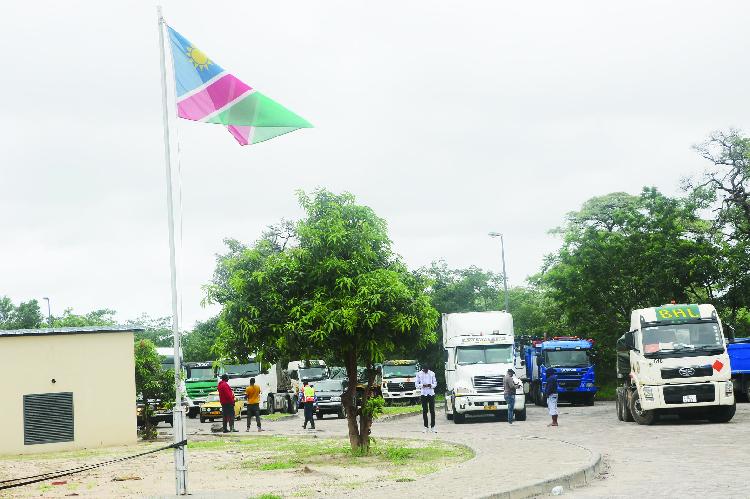Africa-Press – Namibia. SANTO Dosnascimento (32) grew up with one passion: driving big cars.
In 2016, he saw a Namibian truck company was looking for employees to transport goods from Namibia to South Africa and Angola. Dosnascimento saw this as an opportunity to prove his driving skills.
He never had truck-driving lessons, but has been to a driving school to learn to drive cars. “Growing up without a car was hard. I had to learn to drive the hard way,” he says.
“When I saw that vacancy I applied immediately. I was happy and am still happy with my job,” he says.
A few days after applying for the job, Dosnascimento was called back and got the job. During his five years as a truck driver, however, he says he has not faced as many challenges as now.
“I haven’t seen this before. This pandemic has robbed us financially,” he says. Dosnascimento says some transport companies closed down, and deliveries were delayed during the height of the pandemic.
“There were roadblocks everywhere and we were delayed in delivering goods, because we had to follow the precautions,” he says.
To make things worse, Dosnascimento is the sole breadwinner of his family. If he loses his income, his family will not survive. The pandemic has drastically slashed Namibian truck drivers’ income, he says.
PROUDLY VACCINATED Sunday Sichone, who imports goods from the United Kingdom but lives in Zambia, says he has been struggling to find his feet since the pandemic hit.
“Goods took long, and to make matters worse, there was the curfew, and we had to sleep on the road. Imagine driving a truck for three to four days. Life was so hard for me. I had to pay drivers twice a day,” he says.
Sichone got vaccinated to protect himself from getting severely ill with the virus. He says he got his first vaccine dose in Namibia. Sichone says he is proud to be vaccinated, and the vaccine did not affect him negatively.
He hopes things will return to normal eventually. People should not lose hope, but they must get vaccinated to stay safe, he says. “All of us were affected one way or another – some lost their loved ones during the pandemic, but let’s push and we’ll get there,” he says.
Another truck driver, Theolifus Kaliyata, who exports goods, says his company had to retrench some workers, because their salaries could not be paid. He says the pandemic has forced him to stop exporting goods and start doing business locally.
Kaliyata says when Covid-19 hit it was hard to transport goods. “This pandemic really hit us to the point where we had to stop transporting goods. We lost a lot of money,” he says.
Kaliyata says truck drivers have to find other sources of income to survive. 30KM WALK FOR TEST Kennedy Abed, a border control officer, says the pandemic has affected the distribution of food, not only inside, but also outside the country.
Truck drivers were affected negatively because they had to be tested often to be able to travel, and had to acquire travel permits to transport goods.
“At the beginning of Covid-19, there was a rapid test at the border. Nearby residents would come and get tested, which caused a long queue for truck drivers,” he says.
He says the pandemic did not only affect truck drivers, but also Zambians who sell goods in Namibia. “Life is not easy for the Zambians and truck drivers this side. Even those who sell goods at Katima Mulilo have to walk 30km to get tested,” he says.
Truck drivers were under strict supervision during the height of the pandemic, he says. A Zambian resident, who prefers to remain anonymous, says Covid-19 has made life “meaningless”. She says her husband is a truck driver who transports goods abroad, but has been retrenched, while she sells tomatoes and groundnuts for a living.
“I commute to Zambia every day to sell my tomatoes and groundnuts at Katima Mulilo, but when the border was closed I had to stay home and depend on my husband’s salary. Unfortunately he was retrenched,” she says.
“Covid-19 has really robbed us financially. We can’t sell groundnuts and tomatoes in Zambia, because there are lots. We now have to find alternative ways to get money.”
For More News And Analysis About Namibia Follow Africa-Press






